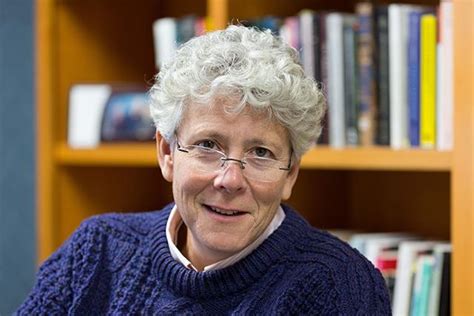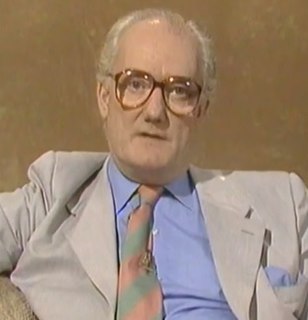A Quote by Noam Chomsky
I am not sure just what Marx had in mind when he wrote that "philosophers have hitherto only interpreted the world in various ways; the point is to change it." Did he mean that philosophy could change the world, or that philosophers should turn to the higher priority of changing the world? If the former, then he presumably meant philosophy in a broad sense of the term, including analysis of the social order and ideas about why it should be changed, and how. In that broad sense, philosophy can play a role, indeed an essential role, in changing the world.
Quote Topics
About
Am
Analysis
Broad
Change
Change The World
Changed
Changing
Changing The World
Could
Did
Essential
Former
Had
Higher
Hitherto
How
Ideas
Including
Indeed
Interpreted
Just
Marx
Mean
Meant
Mind
Not Sure
Only
Order
Philosophy
Play
Point
Priority
Role
Sense
Should
Social
Social Order
Sure
Term
Then
Turn
Various
Ways
Why
World
Wrote
Related Quotes
By declaring yourself a leader, you're taking initiative and moving into a role of influence in a lively and vital network that's changing the world. We're changing the world, first by changing ourselves and then by touching the world as changed beings. We believe the change in us catalyzes change in others. So in changing the world, we're choosing to be the change we wish to see in the world. By taking on this leadership role, you are choosing to be the change too.
Above all else, philosophy ought to aim for clarification - of the self, one's place in the world, and the ways we make meaning. Philosophy, when practiced well, can be useful. It can enable us to grapple in productive ways with questions about the meaning of life and who I am and how I want to be in the world.
I had a student once come up to me and we were talking about this incident, and, of course, I never had the right thing to say. But later on, I realized I should have said: Don't write about trying to change the world, just write about a changed world or a world that's not changing. Let that do the work.
Ever since men became capable of free speculation, their actions, in innumerable important respects, have depended upon their theories as to the world and human life, as to what is good and what is evil. This is true in the present day as at any former time. To understand an age or a nation, we must understand its philosophy, and to understand its philosophy we must ourselves be in some degree philosophers. There is here a reciprocal causation: the circumstances of men s lives do much to determine their philosophy, but, conversely, their philosophy does much to determine their circumstances.
Philosophy used to be a field that had content, but then natural philosophy became physics, and physics has only continued to make inroads. Every time theres a leap in physics, it encroaches on these areas that philosophers have carefully sequestered away to themselves, and so then you have this natural resentment on the part of philosophers.
Philosophy used to be a field that had content, but then 'natural philosophy' became physics, and physics has only continued to make inroads. Every time there's a leap in physics, it encroaches on these areas that philosophers have carefully sequestered away to themselves, and so then you have this natural resentment on the part of philosophers.
The kind of approach I take is different from much of experimental philosophy. Although the experimental philosophers and I are certainly in agreement about the relevance of empirical work to philosophy, a good deal of their work is devoted to understanding features of our folk concepts, and in this respect, at least, I see them as making the same mistake as those armchair philosophers who are interested in conceptual analysis.
The basic drive behind real philosophy is curiosity about the world, not interest in the writings of philosophers. Each of us emerges from the preconsciousness of babyhood and simply finds himself here, in it, in the world. That experience alone astonishes some people. What is all this - what is the world? And what are we? From the beginning of humanity some have been under a compulsion to ask these questions, and have felt a craving for the answers. This is what is really meant by any such phrase as 'mankind's need for metaphysics.'
As an organizer I start from where the world is, as it is, not as I would like it to be. That we accept the world as it is does not in any sense weaken our desire to change it into what we believe it should be - it is necessary to begin where the world is if we are going to change it to what we think it should be.
Socrates: So even our walks are dangerous here. But you seem to have avoided the most dangerous thing of all. Bertha: What's that? Socrates: Philosophy. Bertha: Oh, we have philosophers here. Socrates: Where are they? Bertha: In the philosophy department. Socrates: Philosophy is not department. Bertha: Well, we have philosophers. Socrates: Are they dangerous? Bertha: Of course not. Socrates: Then they are not true philosophers.
Work on causal theories of knowledge - early work by Armstrong, and Dretske, and Goldman - seemed far more satisfying. As I started to see the ways in which work in the cognitive sciences could inform our understanding of central epistemological issues, my whole idea of what the philosophical enterprise is all about began to change. Quine certainly played a role here, as did Putnam's (pre-1975) work in philosophy of science, and the exciting developments that went on in that time in philosophy of mind.
As an organizer, I start from where the world is, as it is, not as I would like it to be. That we accept the world as it is does not in any sense weaken our desire to change it into what we believe it should be - it is necessary to begin where the world is if we are going to change it to what we think it should be. That means working in the system.
It has seemed to me that literature, as I meant it, was embattled, that it was increasingly difficult to find writing doing what I thought literature should do - which was simply to push people into changing their ideas about the world, and to go further, to encourage us in the work of changing the world, to making it more just and more truly human.



































